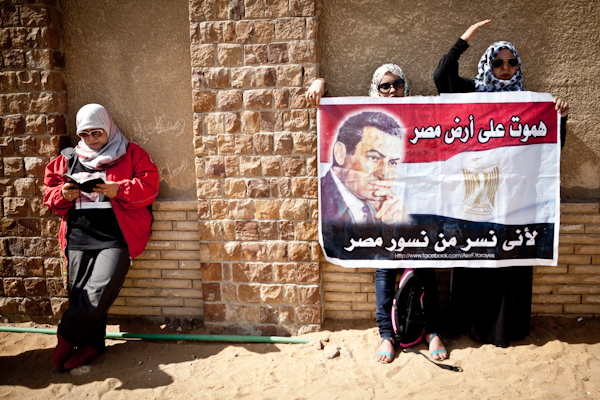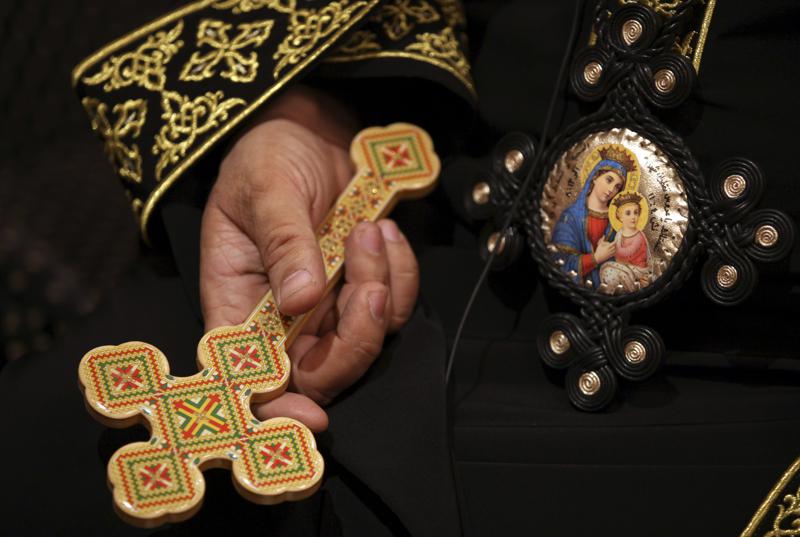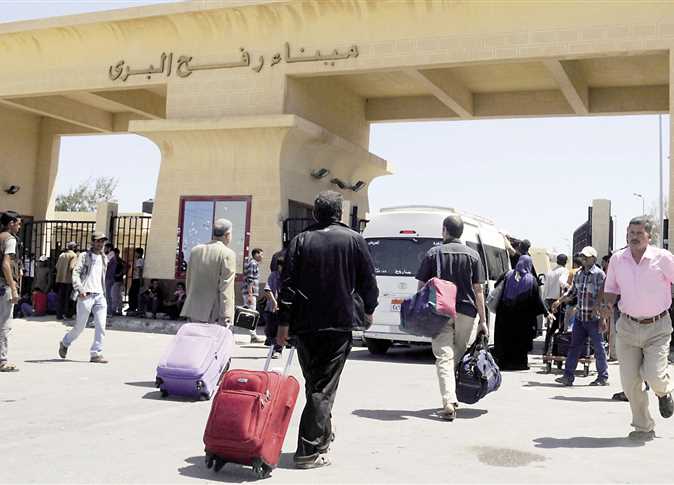
The only trial that has taken place against one of the fallen dictators of the Arab revolutions ended today. The verdicts in former President Hosni Mubarak's trial may have symbolic importance for the region, but many feel they have mocked the hundreds of martyrs who died fighting against a 30-year-old repressive and corrupt regime, analysts said.
Conducted in a transitional period that has been presided over by an unaccountable military body, the Supreme Council of the Armed Forces (SCAF), Saturday's verdicts highlight the trial's lack of transparency and will have a regressive impact on security sector reform. The outcome may also swing voters ahead of the presidential election runoffs in two weeks, the analysts added, though how the influence will play out is unclear.
Judge Ahmed Refaat sentenced Mubarak and former Interior Minister Habib al-Adly to 25 years in prison for complicity in the killing of more than 800 protesters last year, while acquitting six high-level security officials of the same charges, and acquitting Mubarak and his sons for financial corruption charges. Once the verdicts were heard, scuffles broke out and parents wailed over pictures of their dead sons.
An imperfect process
Saturday’s verdict is the culmination of a trial that was flawed from the beginning, analysts say, because of the lack of transparency surrounding the case, the weakness of the prosecution’s claims and the political resonance of the trial — whatever its outcome.
"The fact that [Mubarak] has been sentenced to life is in itself a milestone in the region. But in a country where the death sentence can be passed he may have got off quite lightly," says Maha Azzam, an associate fellow in the Middle East and North Africa Program at the London-based think tank Chatham House. "It is difficult to judge, because the trial has not been transparent. And in terms of innocent protesters that lost their lives, it is not clear that justice has been served."
Questions still linger about how the sentencing works. Mubarak and Adly were sentenced for knowing about and failing to stop the violence against protesters, but no one has been convicted for the killings themselves. More than 800 people were killed by security forces during the uprising.
The prosecution also shares the blame for presenting insufficient evidence.
"The judges acquitted the Interior Ministry of all responsibility. Finding no evidence to prove that the executive body and state security were responsible for killing protesters is a complete joke," says Karim Ennarah, a researcher on security sector reform at the Egyptian Initiative for Personal Rights. "There was a clear conflict of interest in the criminal investigation with the ministry investigating its own police."
Ennarah believes Refaat could have examined additional evidence, such as videos shot by citizens and journalists that showed police killing protesters on 28 January, the most violent day of the revolution.
"There is still enough evidence to indict the police, which the judge is blatantly ignoring," Ennarah says.
When providing the reasoning behind the acquittals of the six police chiefs, Refaat said that the prosecution had failed to identify the perpetrators of the shootings. He added that the video and audio evidence had not convinced the court, and that it was therefore impossible to attribute responsibility to Adly's deputies.
The decision to ignore evidence or selectively enforce charges may be attributed to the highly political nature of the case.
"All judicial rulings in big cases that have a political nature and that follow political unrest or major popular actions are meant to be politically laden," says Nabil Abdel Fattah, a political analyst with the government-sponsored Ahram Center for Political and Strategic Studies.
Michael Wahid Hanna, a fellow at the New York-based Century Foundation, agrees that Mubarak’s trial is heavily influenced by the larger political changes in the country. "These trials have been politicized," Hanna says. "You can't look at them as independent processes."
Instead, Ennarah and many critics of the trial say, a case against a deposed dictator shouldn’t be heard in a normal, unreformed court by a judge appointed by the deposed regime.
"When relying on Interior Ministry investigations, you need a special transitional justice court mechanism to deal with that, but it didn’t happen," the researcher said.
No serious reform
The trial of Mubarak, Adly, Gamal and Alaa Mubarak, businessman Hussein Salem and the six Interior Ministry officials presented the judiciary with an opportunity to send a serious message to government institutions that abuse of power, human rights violations and corruption are no longer acceptable and regime figures are not above the law.
While Mubarak’s conviction may send a warning to the next president — whoever he is — the acquittal of Adly’s deputies suggests that the Interior Ministry can continue to kill dissenters with relative impunity. For human rights advocates, security sector reform has been a top priority in the post-Mubarak transition, but one that has seen few successes.
"The ministry continues to operate in an environment that will never be held accountable. There is already a lot of frustration and the lack of civic trust is increasing," says Ennarah.
Moreover, the limited scope of the conviction for Mubarak doesn’t send the right signal to future politicians, according to Azzam. Although Refaat’s opening remarks referenced Mubarak’s 30 years of corruption and abuse, the former president was only convicted for killing protesters between 28 and 31 January, three days out of his 30-year reign under which the Interior Ministry is widely reported to have regularly tortured and killed with impunity.
"Mubarak was never tried for the 30 years of dictatorship when Egyptians suffered politically and economically. The trial was a microcosm of his political role. There was no judgment on the 30 years, in which the security services wreaked havoc on people’s lives," Azzam said.
Election impact
The results of the much-anticipated Mubarak trial will undoubtedly impact the presidential election runoff scheduled to take place on 16 and 17 June between the Muslim Brotherhood’s Mohamed Morsy and Ahmed Shafiq, Mubarak’s last prime minister.
How the voters will be swayed by the results, however, remains to be seen.
"The Interior Ministry generals are free and are going to be out on the streets mobilizing [support for Shafiq]," Hanna says. Shafiq, who has a military background in addition to being a member of Mubarak’s Cabinet, is viewed as the preferred candidate of the Interior Ministry and the military.
"The verdict helps Shafiq, because it has a possibility of animating his support base. For those who feel a nostalgia for the old regime, who might have good feelings toward Mubarak, it would activate a sense of injustice, and mobilize people to vote for Shafiq," Hanna said.
Like many others, Azzam, however, believes the verdict will play into the hands of Morsy and the Muslim Brotherhood, both of whose campaign rhetoric includes touting the rights of the martyrs of the revolution.
Morsy's campaign coordinator Ahmed Abdel Atty released a statement on the presidential campaign's Facebook page today commenting on the verdicts: "The blood of our martyrs won't be wasted. As Egyptians, we will seek a just punishment and a retrial for all those who committed crimes against the nation. The verdict was shocking for the people, who will no longer stay silent for their rights."
Azzam believes Morsy will be the ultimate beneficiary.
"I think it will play out against Shafiq and is a reminder of what has happened in terms of a loss of rights. It revives what the Mubarak period was about," she said. "There are those who are committed to supporting the old regime. But doubters may feel uncomfortable with supporting Shafiq. So, they will either boycott the run-offs, or shift the balance toward Morsy."




